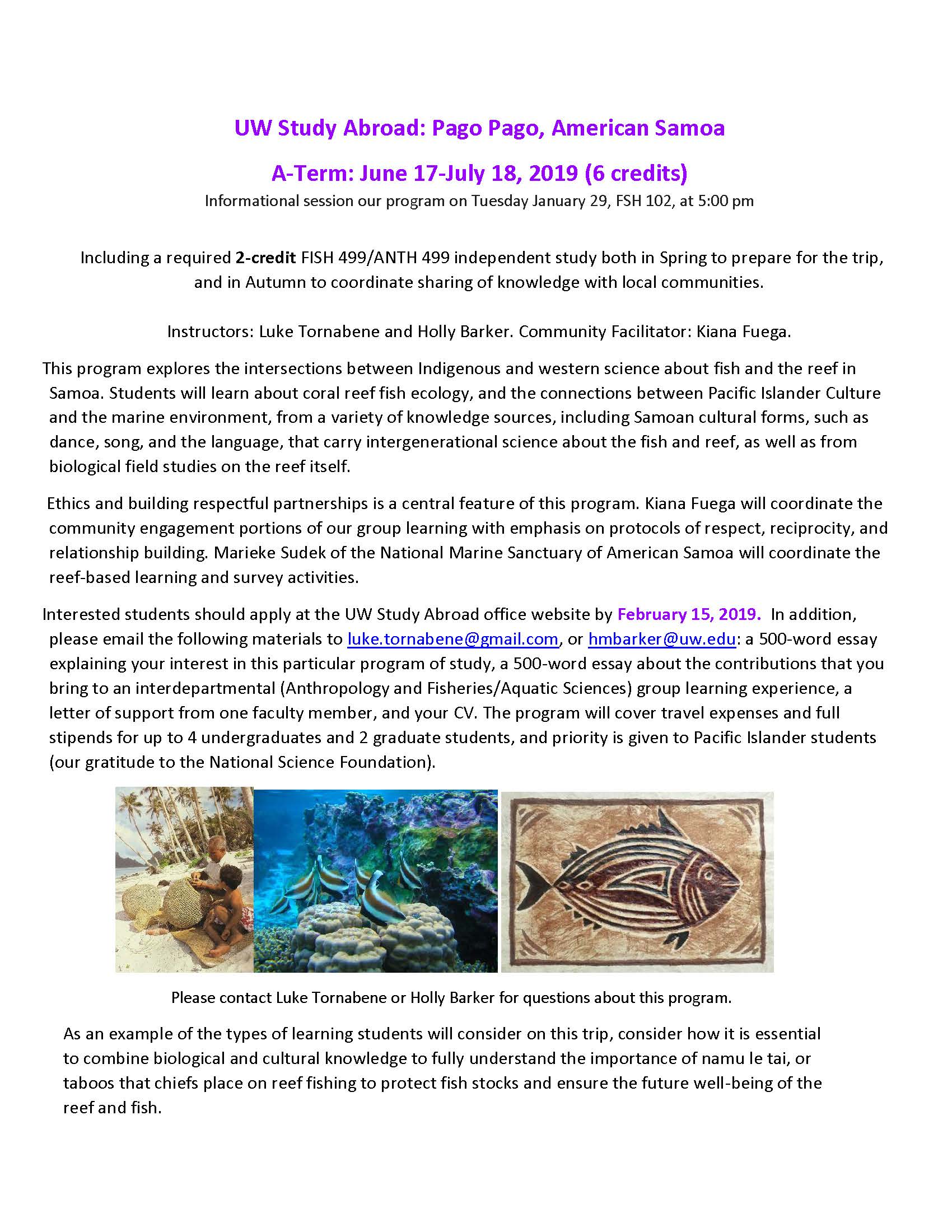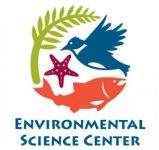
WHAT IS PAC-ISLES?
PAC-ISLEs is a 3-year NSF funded program with the goal of creating international research experiences for students. Each student involved in PAC-ISLEs will participate in a year-long research program punctuated by an overseas research experience in America Samoa, Tonga, or Pohnpei, where they will study the history (anthropological and biological) and connectivity (historic and contemporary) of indigenous cultures and fish communities across Pacific islands.
Four undergraduate and two graduate students will be chosen to participate in the program each year, which also includes pre- and post-trip seminar courses at UW’s School of Aquatic and Fishery Sciences, and the Department of Anthropology, covering topics related to the ecology and culture of Oceania. While overseas, student-led research projects will focus on various aspects of Oceanic culture, biology, and connections between the two. Students will be supervised by foreign mentors with extensive experience in marine ecology and a robust history of collaboration and integration with the native Pacific Islander communities.
WHY STUDY THE CULTURE AND ECOLOGY OF OCEANIA?
The islands of Oceania support fish communities and human cultures whose histories are inseparably tied to their physical and geographic characteristics (e.g. resource availability and habitat space), and the extent of connectivity among distant islands (e.g. dispersal potential, gene flow, history of human migrations and trade). These concepts are intrinsically tied to both Pacific Island anthropology and biology, making the holistic study of Pacific Island life ideal for a cross-disciplinary research experience for students. PAC-ISLEs students will conduct projects that will focus on the evolutionary origins of fish communities, aspects of change and adaptation in Pacific Island culture, and the connectivity between cultures and fish communities across islands at different temporal and spatial scales. When these data are analyzed and contextualized with existing and extensive biological and anthropological collections from Oceania at the Burke Museum of Natural History and Culture, findings from PAC-ISLEs have the potential to greatly advance our understanding of biological and cultural diversity on and around Pacific Islands, while simultaneously promoting an equitable exchange of information between Islanders and students.
INTERESTED IN PARTICIPATING IN THIS EXCITING OPPORTUNITY?
The program is open to all UW students in the Department of Anthropology, School of Aquatic and Fisheries Sciences, or other relevant programs (e.g. Oceanography, Biology). The only requirement is that you must be a citizen, national, or permanent resident of the United States. Student applications will be evaluated holistically, based on a combination of research and or life experience, interests, academic performance, and letters of recommendation. The PAC-ISLEs program values a culture of inclusion, and therefore students of all genders, ethnicities, backgrounds, and individuals with disabilities are all encouraged to apply. Students that identify as Pacific Islanders are especially welcome.
- Applications will be accepted at the UW Study Abroad website until February 15!
- An informational seminar will be held at the Fisheries Science Building, FSH 102, January 29 at 5:00 pm. Light refreshments will be served.
- To apply, please fill out the online application at the UW Study Abroad Website here. In addition, please prepare the following, and email to Luke.Tornabene@gmail.com and or hmbarker@uw.edu.
- a letter of support, preferably from a UW faculty member (letters can be mailed directly from writers to the email address above)
- a 500-word essay explaining your interest in this particular program of study
- a 500-word essay about the contributions that you bring to an interdepartmental (Anthropology and Fisheries/Aquatic Sciences) group learning experience
- a curriculum vitae (CV) including a list of any coursework that may be relevant
- Questions or comments? Email Luke (Luke.Tornabene@gmail.com) and or Holly (hmbarker@uw.edu).
program website
 Summer 2019 Employment Opportunities
Summer 2019 Employment Opportunities


